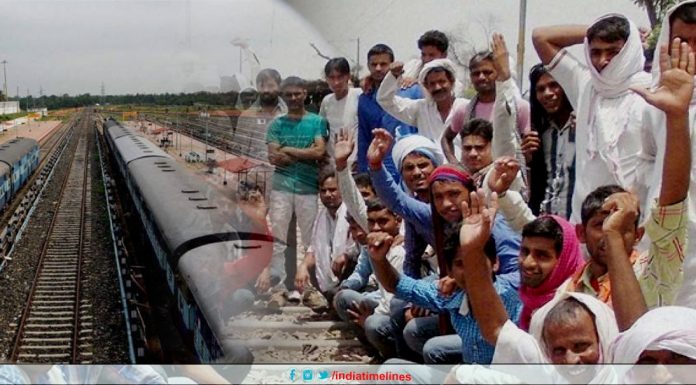
In a political landscape where accusations and counter-accusations are commonplace, the recent statements by Mayawati regarding the RSS order have stirred significant controversy. The issue at hand not only highlights the ongoing political tussles but also raises questions about the dynamics of appeasement politics in India. This article delves into the intricacies of Mayawati’s accusations against the BJP-led Centre, exploring the various dimensions of this contentious issue.
Background of the RSS Order
The RSS (Rashtriya Swayamsevak Sangh), a Hindu nationalist organization closely associated with the BJP, recently issued an order that has sparked widespread debate. The order in question pertains to certain guidelines and directives that the RSS expects its members to follow. Historically, the RSS has played a crucial role in shaping the BJP’s ideology and political strategies, making this order particularly significant.
Mayawati’s Accusations
Mayawati, a prominent political leader and former Chief Minister of Uttar Pradesh, has been vocal in her criticism of the RSS order. She accuses the BJP-led Centre of using the RSS as a tool for appeasement politics, alleging that the order is a strategic move to cater to specific voter bases. Mayawati argues that this approach undermines the principles of secularism and inclusivity that are foundational to India’s democracy.
Reaction from the BJP-Led Centre
The BJP-led Centre has been quick to respond to Mayawati’s accusations. Party leaders have dismissed her claims as baseless, asserting that the RSS order is intended to promote national unity and cultural values. They argue that Mayawati’s statements are politically motivated, aimed at discrediting the BJP ahead of upcoming elections. The media has extensively covered this exchange, further fueling the controversy.
Political Implications
The political implications of this controversy are significant. For the BJP, the accusations could affect their electoral prospects, particularly among voters who are sensitive to issues of religious and cultural identity. The controversy also puts the spotlight on the BJP’s broader political strategy, raising questions about their commitment to secularism. For Mayawati, this issue provides an opportunity to rally support and assert her political relevance.
Media and Public Reaction
The media has played a pivotal role in shaping public perception of this controversy. News outlets have provided extensive coverage, with opinion pieces and editorials dissecting the implications of Mayawati’s accusations. Social media platforms have seen a surge in discussions, with hashtags related to the issue trending for several days. Public opinion is divided, with some supporting Mayawati’s stance and others backing the BJP’s counter-arguments.
Historical Context of Political Accusations in India
Political accusations are not new in India. History is replete with instances where leaders have accused their rivals of various misdeeds. Comparing Mayawati’s accusations to previous controversies provides valuable insights into the nature of Indian politics. These historical parallels also highlight the recurring themes and strategies that politicians employ to gain an advantage.
Mayawati’s Political Career
To understand the significance of Mayawati’s accusations, it is essential to delve into her political career. As the leader of the Bahujan Samaj Party (BSP), she has been a formidable force in Indian politics. Her tenure as Chief Minister of Uttar Pradesh saw both significant achievements and controversies. Mayawati’s advocacy for the rights of marginalized communities has earned her a dedicated following, making her a key player in the current political scenario.
BJP’s Political Strategy
The BJP’s political strategy has evolved over the years, with a focus on promoting economic development, national security, and cultural nationalism. The party’s close association with the RSS has been a defining aspect of its identity. Analyzing the BJP’s recent strategies provides a context for understanding their response to Mayawati’s accusations and the potential impact on their voter base.
RSS and Its Influence
The RSS, founded in 1925, has a long history of influencing Indian politics. Its ideology centers on promoting Hindu cultural values and nationalism. The organization’s relationship with the BJP has been instrumental in shaping the latter’s policies and strategies. Understanding the RSS’s role and influence is crucial for comprehending the broader implications of the recent order and the ensuing controversy.
Appeasement Politics in India
Appeasement politics refers to policies and actions aimed at placating specific groups to secure their support. This approach has been a contentious issue in Indian politics, with leaders from various parties accused of practicing it. Examining past instances of appeasement politics helps in contextualizing Mayawati’s accusations and the potential repercussions for the BJP-led Centre.
Legal and Constitutional Aspects
The legal and constitutional dimensions of the RSS order cannot be overlooked. Experts have weighed in on the potential legal implications, debating whether the order aligns with India’s constitutional principles. These discussions provide a deeper understanding of the controversy’s complexity and the challenges involved in resolving it.
Social Implications
The controversy has significant social implications, particularly for communal harmony. The RSS order and the ensuing political accusations have the potential to create divisions within society. Analyzing the social impact of this issue sheds light on the broader consequences for India’s diverse communities and the importance of maintaining social cohesion.
Future Prospects
Looking ahead, the controversy surrounding the RSS order and Mayawati’s accusations could have lasting effects on Indian politics. Potential outcomes range from changes in political alliances to shifts in voter behavior. Understanding these prospects is essential for anticipating the future trajectory of Indian politics and the possible resolutions to this contentious issue.
Conclusion
In conclusion, the controversy sparked by the RSS order and Mayawati’s accusations against the BJP-led Centre highlights the complexities of Indian politics. This issue underscores the delicate balance between cultural values, political strategies, and social harmony. As the debate continues, it is crucial for all stakeholders to engage in constructive dialogue and work towards a resolution that upholds the principles of democracy and inclusivity.



































